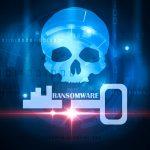BBII Ransomware is another infection that is part of the STOP/Djvu Ransomware family. Like its predecessors, it locks files and demands a ransom fee to restore file access. If you tend to install applications from misleading and/or potentially unreliable third-party sites, you may end up unknowingly installing threats like BBII Ransomware on your computer. Ransomware like BBII Ransomware often is distributed via malicious spam emails, fake websites laced with malware, and torrent websites offering cracked software.
BBII Ransomware can encrypt multiple file types, including photos, music, documents, and videos. BBII Ransomware, upon file encryption, appends the .BBII extension to encrypted files and leaves a ransom note named !README!.txt on the user’s desktop and in every folder containing affected files.
Unfortunately, the BBII ransomware victims do not have access to a free decryption tool at the moment. The best way to get the encrypted files back is to restore them from a backup. If you do not have a file backup, search on the Web for a dependable alternative data recovery service that might restore some of the encrypted files. However, please note that alternative data recovery tools may not work.
Once access to the victim’s system is achieved, BBII Ransomware encrypts important files and then demands a ransom in exchange for the decryption key. The decryption cost is $980, but the hackers offer a 50% discount if contact is established within the first 72 hours after infection. Although the hackers behind BBII Ransomware promise to provide a decryptor for payment, it is most likely that you may pay and never receive the decryption tool with the key. Thus, it is strongly recommended that you refrain from paying these cybercriminals.
How Do I Deal with a BBII Ransomware Attack?
To protect yourself from a BBII Ransomware attack, you should have a reputable malware remediation tool installed on your computer. That way, you can constantly scan for elements associated with this troublesome ransomware infection, as well as other malware. To protect your files from encryption, make sure to back them up on a cloud drive or an external storage





